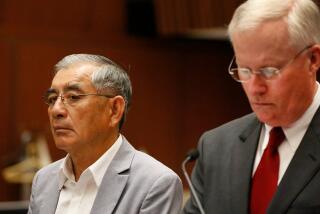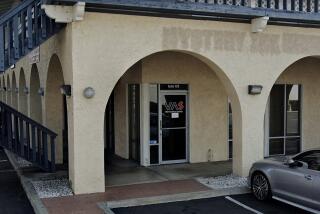Judge orders Arizona nonprofit to hand over political-donation records
SACRAMENTO — A state judge Wednesday ordered an Arizona nonprofit to hand over a wide range of records involving its $11-million donation to California political campaigns, a victory for the state’s campaign finance watchdog.
California’s Fair Political Practices Commission is trying to unmask the donors behind the Arizona group. The case is being watched as a test of state regulations intended to prevent campaign contributors from anonymously routing money through nonprofits.
“This is a moment of truth for our campaign disclosure laws,” said Derek Cressman of Common Cause, an activist group that filed a complaint against the Arizona organization.
It’s unclear if the names of donors could become public before the election Tuesday. State authorities want the records, including emails and financial statements, by Thursday afternoon, but a spokesman for the nonprofit’s lawyers said they would appeal the case.
Even if California authorities get the records they want, they must conduct an audit to determine whether shielding the donors’ identities is improper.
The Arizona group, Americans for Responsible Leadership, gave the $11 million to the conservative Small Business Action Committee. The committee is fighting Gov. Jerry Brown’s tax-hike plan, Proposition 30, and supporting a measure to curb unions’ political influence, Proposition 32.
The donation has placed California in the middle of a nationwide debate over disclosure of political donors using secretive nonprofits. Federal law allows nonprofits to keep those identities confidential. California regulations say donors must be identified if they gave to nonprofits with the intention of spending money on state campaigns.
The Arizona group insists it is following all the laws and has a 1st Amendment right to keep its donors secret. Its lawyer, Jason Torchinsky, said in court Wednesday that the nonprofit has been unfairly targeted.
“If your speech is unpopular,” he said, “expect reprisals and immediate government action.”
Gary Winuk, chief of enforcement at the Fair Political Practices Commission, denied that the audit was politically motivated.
“Our only agenda is to make sure the public has information to make their own informed decisions,” he said.
More to Read
Sign up for Essential California
The most important California stories and recommendations in your inbox every morning.
You may occasionally receive promotional content from the Los Angeles Times.











